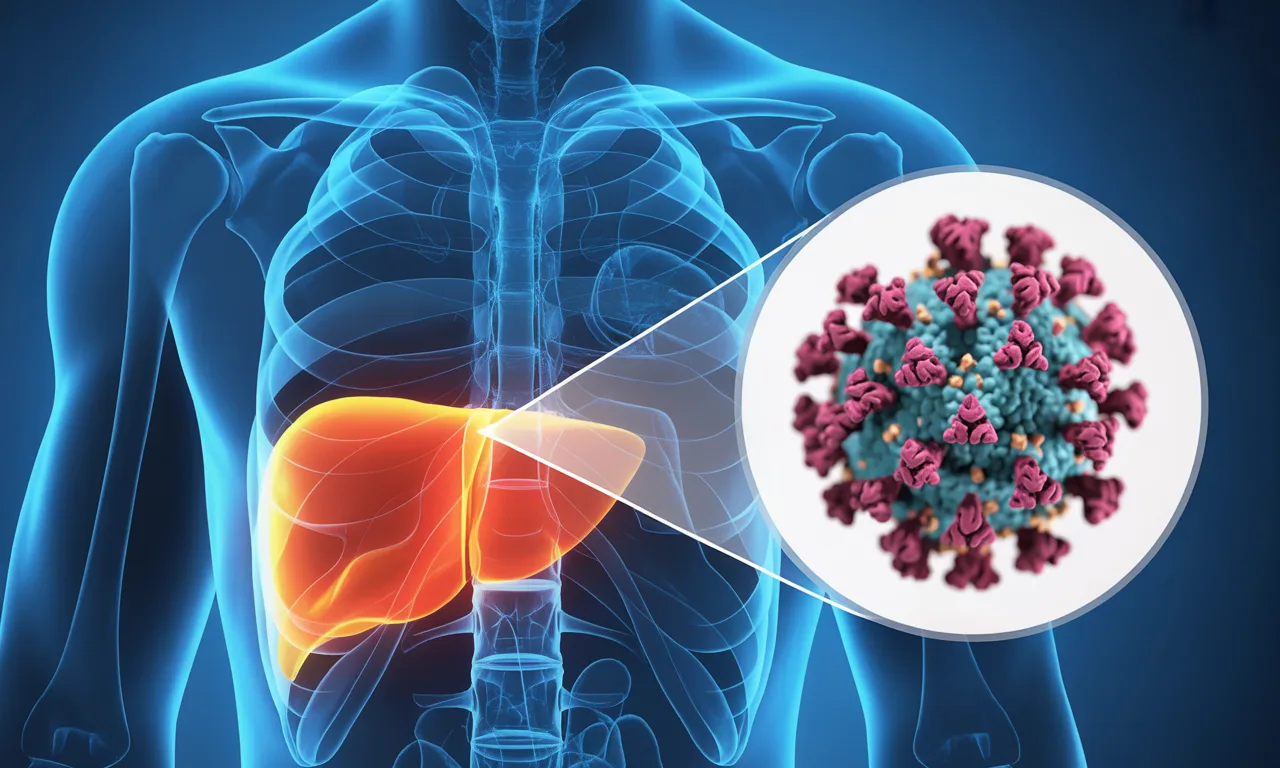Updated July 2025 — Hepatitis A cases in Pune have more than doubled this year, triggering serious public health concerns. As early monsoon rains hit the city, water contamination and poor sanitation are causing a rapid increase in waterborne diseases, especially Hepatitis A.
📈 Hepatitis A Cases Double in Pune During 2025 Monsoon
Pune is experiencing a significant spike in Hepatitis A cases this monsoon season, raising serious concerns among public health officials. According to recent data from the Pune Municipal Corporation (PMC), a total of 57 cases of viral hepatitis were reported between March and June 2025—more than double the 26 cases recorded during the same period in 2024. The majority of these have been confirmed as Hepatitis A, a highly infectious liver disease caused by consuming contaminated food or water.
What’s more troubling, doctors report that Hepatitis A symptoms in 2025 are unusually severe, with patients experiencing prolonged fatigue, abdominal discomfort, and more aggressive onset of jaundice. Health experts attribute this surge to heavy rainfall, pipe leakages, and waterlogging in several parts of Pune. These conditions have led to sewage mixing with drinking water—a primary source of Hepatitis A transmission during the rainy season.
Officials are urging citizens to maintain strict hygiene practices, drink only boiled or filtered water, and avoid consuming food from roadside vendors. The public is also being advised to consider Hepatitis A vaccination, especially for children, the elderly, and those living in high-risk zones of the city.
🔍 What is Hepatitis A?
Hepatitis A is a highly contagious liver infection caused by the Hepatitis A virus (HAV). It spreads through the fecal-oral route, often due to consumption of contaminated food or water. Unlike Hepatitis B or Hepatitis C, Hepatitis A does not lead to chronic liver disease, but severe cases can cause prolonged illness and liver inflammation.
🚨 Key Causes Behind the Hepatitis A Surge in Pune
1. Contaminated Drinking Water
Monsoon-related leaks in pipelines have allowed sewage to mix with municipal water, making it unsafe for drinking. Residents consuming untreated or unboiled tap water are at the highest risk of infection.
2. Street Food Prepared in Unhygienic Conditions
Street vendors often use contaminated water to prepare juices, chutneys, and salads. These uncooked items carry a high risk of viral transmission during the rainy season.
3. Poor Sanitation Infrastructure
Overflowing drains, clogged sewers, and unclean public toilets are contributing to the spread of waterborne diseases across densely populated areas of Pune.
4. Early Onset of Monsoon
The 2025 monsoon arrived earlier than usual, catching the city’s civic systems unprepared and increasing the window of viral exposure for residents.
👨⚕️ Common Symptoms of Hepatitis A
- Fever and sudden fatigue
- Nausea and vomiting
- Loss of appetite
- Abdominal discomfort
- Dark-colored urine
- Pale stools
- Yellowing of eyes and skin (jaundice)
Symptoms usually appear 2–6 weeks after exposure. Adults are more likely to experience severe symptoms compared to children.
🎯 Who is Most at Risk in Pune?
- Residents using unfiltered tap water
- People consuming street food or raw produce
- Children under 10 and senior citizens
- Individuals with low immunity or liver conditions
✅ How to Prevent Hepatitis A During Monsoon
1. Drink Only Boiled or Filtered Water
Boil drinking water for at least 5 minutes or use certified water purifiers. Avoid using ice from unknown sources.
2. Avoid Raw and Street Foods
Refrain from eating uncooked items like chutneys, juices, salads, and fruit from roadside vendors. Choose home-cooked meals.
3. Practice Proper Hygiene
Wash hands with soap before eating or preparing food. Use disinfectant on kitchen surfaces and utensils.
4. Get Vaccinated Against Hepatitis A
The Hepatitis A vaccine is safe and effective. It’s recommended for children, travelers, food workers, and anyone living in high-risk areas like Pune during monsoon.
🏥 What To Do If You Suspect Hepatitis A
If you or someone in your household experiences symptoms:
- Consult a doctor immediately
- Get tested for liver function and HAV IgM antibodies
- Follow a light, liver-friendly diet
- Take complete rest and avoid alcohol
📉 Why Pune is Vulnerable to Hepatitis A
Pune is transitioning from high to intermediate endemicity. Improvements in sanitation have reduced childhood exposure to HAV, but this leaves a larger adult population unprotected. This shift increases the risk of symptomatic outbreaks during contamination events like monsoons.
📝 Conclusion: Protect Yourself from the Hepatitis A Outbreak
The sharp rise in Hepatitis A cases in Pune in 2025 serves as a warning to all residents. The combination of early monsoon, poor water quality, and unhygienic food practices has created the perfect environment for a viral outbreak.
Prevention is simple: drink safe water, avoid street food, maintain hygiene, and get vaccinated. Staying informed and alert can protect you and your family during the high-risk monsoon months.
🔬 Get Tested for Hepatitis A Virus (HAV) in Pune
If you are experiencing symptoms of Hepatitis A—such as jaundice, nausea, fatigue, or dark urine—it’s important to get tested immediately. Early diagnosis helps in faster recovery and prevents further spread of the infection.
You can book a reliable and accurate Hepatitis A Virus (HAV) RNA Detection Qualitative Test through DNA Labs India, a trusted diagnostics provider:
👉 Book HAV RNA Detection Test at DNA Labs India
This test detects the presence of Hepatitis A RNA in your blood, even before antibodies develop—making it ideal for early-stage detection.
Don’t wait for symptoms to worsen—test early, treat early, and stay safe this monsoon.



